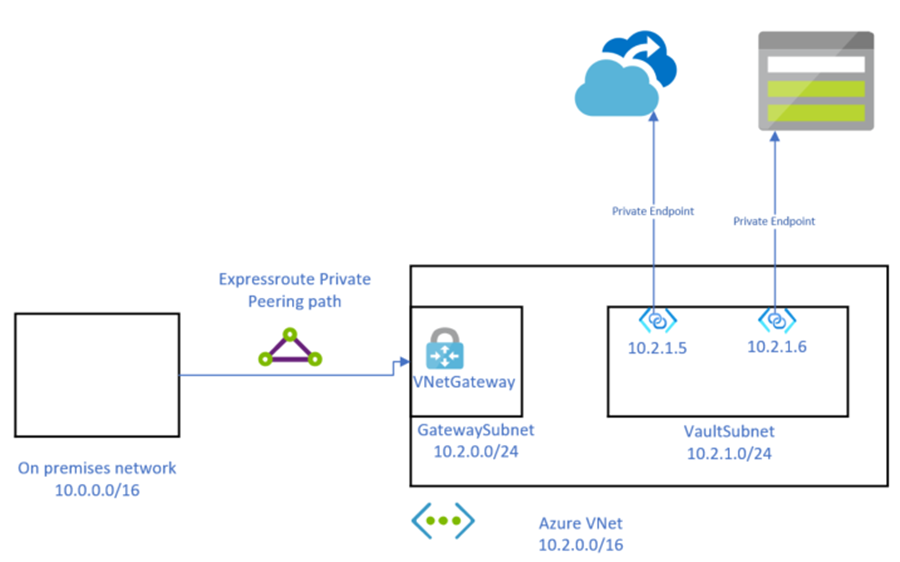@Shashank Singh - You can use private endpoints for both storage and for the Recovery Services Vault. That way you can use the private peering path in Express-route for everything.
If you enable private endpoints on both the storage and the vault, then all traffic is routed across the private peering path of the Express-route circuit to a private IP address created by the private endpoint. Private endpoints allow you to create a private IP address within an Azure VNet that allows you to connect to Azure PaaS objects across private network IPs.
It is very basic and missing some components (like DNS) – but in the graphic below. The left side box is the on-premises network at 10.0.0.0/16 with an Express-route connection in place and only the private peering path enabled. It is connected to an Azure VNet and 10.2.0.0/16 with a subnet defined as 10.2.1.0/16. Private endpoint connections for each of the Vault and a storage account allow for each of those services to be assigned an IP address in the 10.2.1.x/24 range. So now the storage account and the recovery services vault only need a path from the 10.0.0.0/16 network on-premises to the 10.2.0.0/16 VNet in Azure, which should exist by default in the BGP routes built in to Express-route. No proxy is needed because you are connecting to private address – not public ones.

----------------------------------------------------------------------------------------------------------------------
If the response helped, do "Accept Answer" and up-vote it


